Wen is a palliative care registered nurse who works in an inner city program for homeless people near the end of their lives. She talks about what her clients have taught her about living a full and compassionate life.
At first, we largely cared for homeless people who we thought had three to six months to live, mostly people with HIV/AIDS.
“The focus was on death with dignity. But with better treatment, people are living longer, so there has been a shift to life with dignity.”
“We now have an aging homeless population living with cancer, liver failure, heart failure and chronic lung disease. Their disease trajectory is often up and down, but they need more help as their disease advances. We apply for long-term care for many of them, but in the applications, we have to disclose whether they smoke, how much they drink, if they use substances, or whether they have behavioural issues due to a mental illness. So most aren’t accepted. That’s why we have recently expanded our beds from 14 to 21 – so we can provide a service they need.”
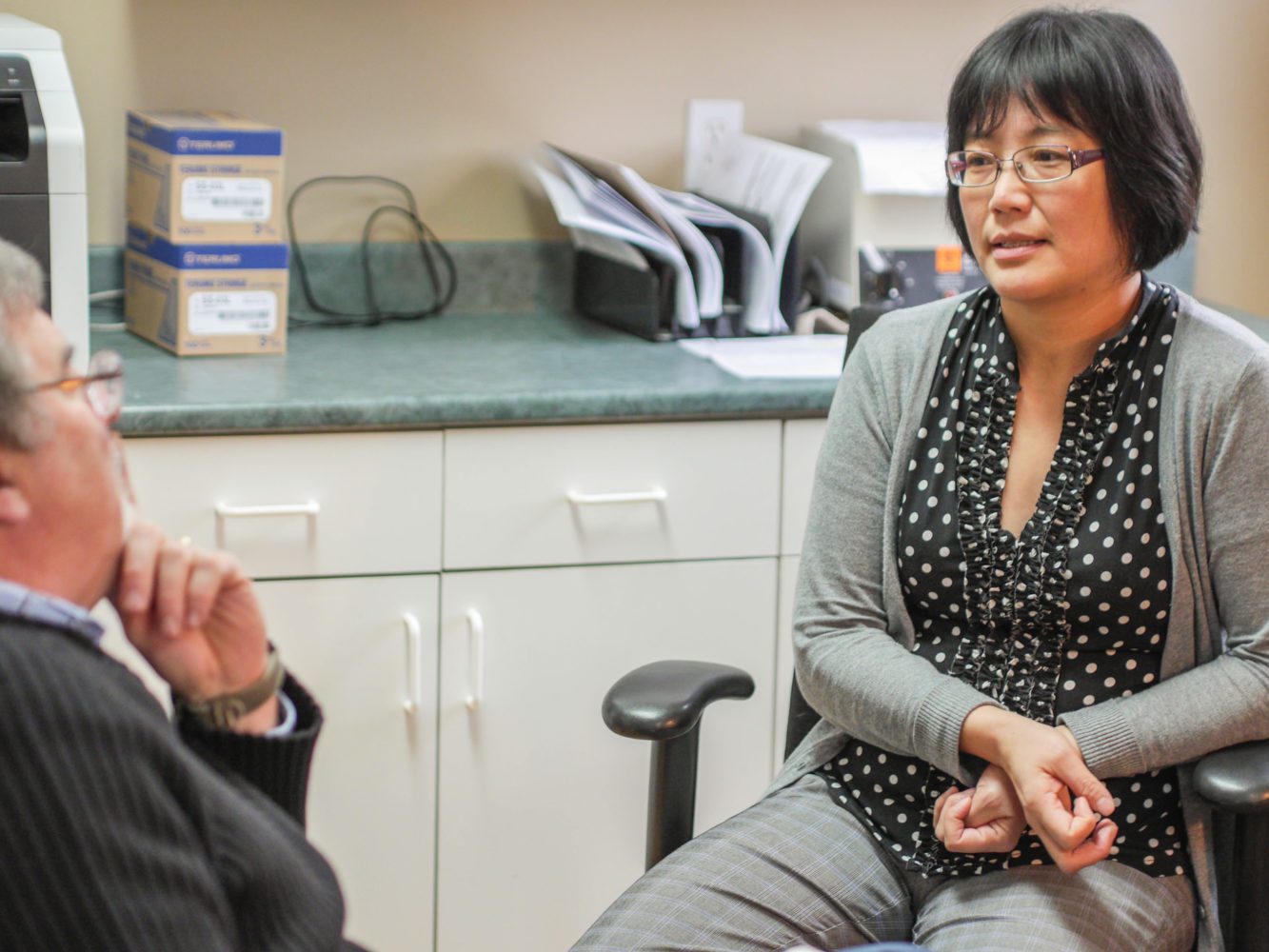
“Is your work hard on you emotionally?”
“We have about 15 to 20 deaths a year, but they don’t space out evenly. Recently, we had quite a few people pass away over two weeks. That was really hard on me and the whole team. I did have one super busy day when I experienced kind of a meltdown. I had a new admission, I needed to send someone else to the emergency department, and a third person wasn’t doing well. Add that to the deaths we had experienced in a short time. By the end of the day, I felt sore in the neck, shoulder and back, and had a headache. But part of my training in palliative care was about self care, so I think I am quite self-aware. Generally speaking, I cope very well. If I notice signs or symptoms, I talk them through with my colleagues. We have a very good, supportive team.”
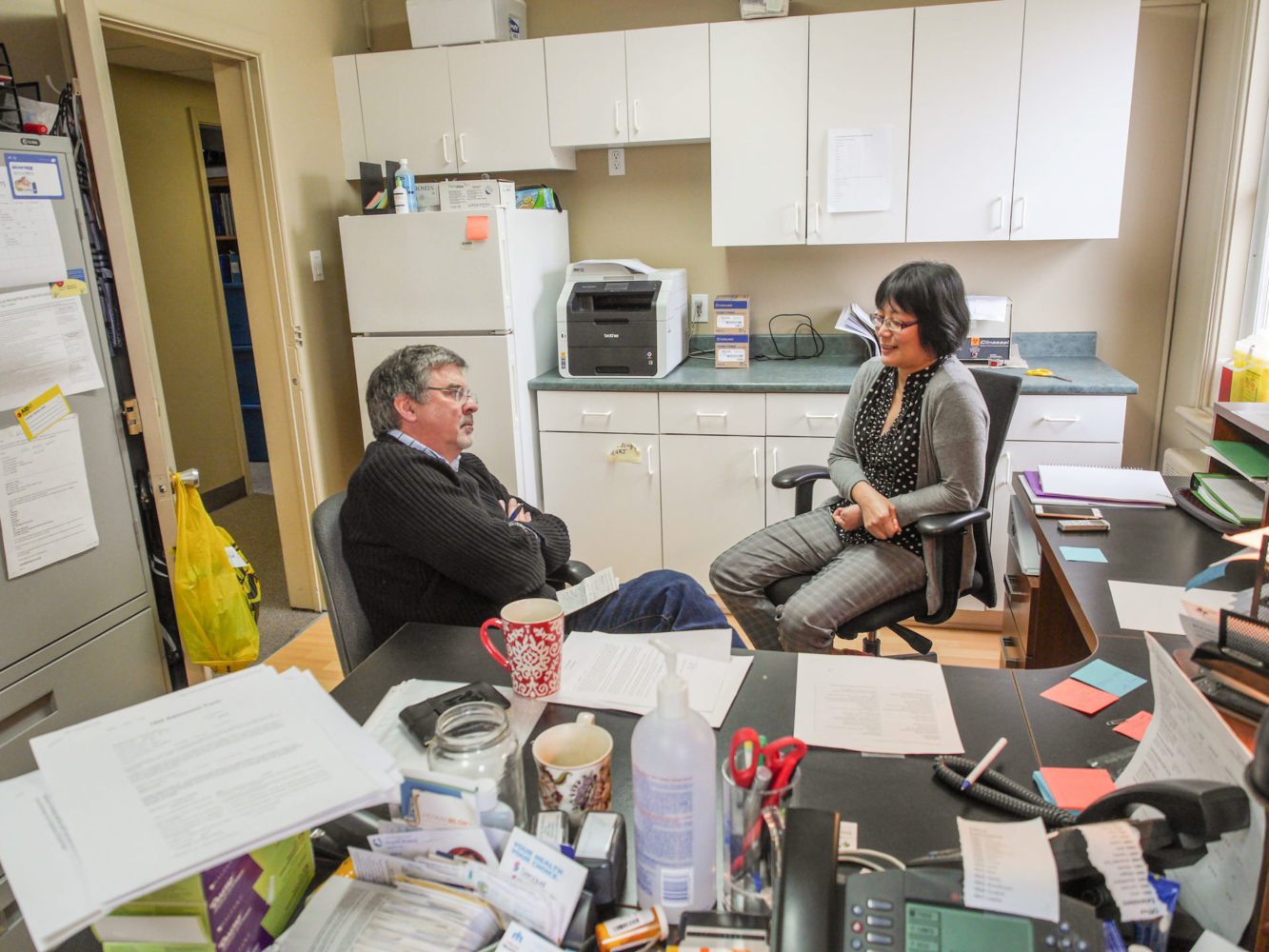
“Who is with your clients when they die?”
“It’s really individualized. Just because they are homeless, that doesn’t mean that nobody cares for them or they have no family support at all. Some patients have good family support while others are totally estranged from their family. Many also have a street family, friends from the street.”
“If they have no family, a volunteer or staff person will sit at the bedside so they don’t die alone. They hold the client’s hand until the end and provide comfort.”
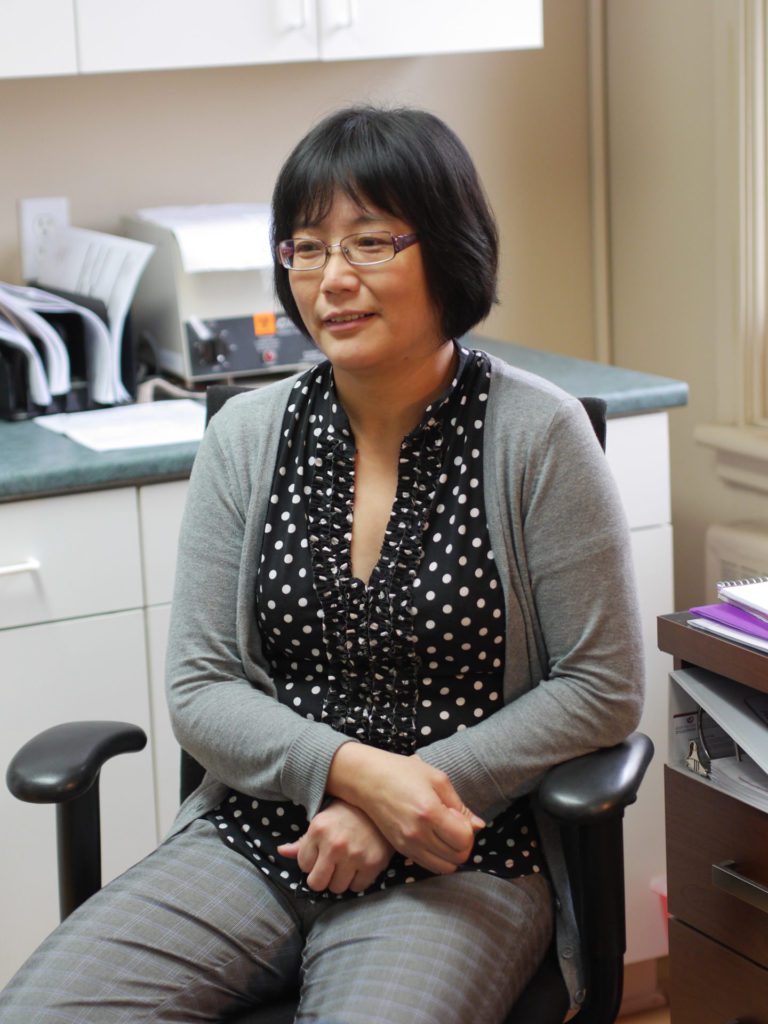
“How do you build trust with your patients?”
“Some patients may have schizophrenia. They may be suspicious that someone is trying to poison them and they won’t take any food. We have to build a rapport. It’s really an art. At the beginning, you kind of set up an environment that’s quiet, that respects privacy. You don’t overstimulate them.”
You have to accept what they do and what they think of you. If they yell at you, you don’t yell back. You don’t try to teach or lecture.
“You let them cool down. You don’t force them to take medication. Once they feel the place is safe, warm and welcoming for them, many of them will take the medication. You have to let them get settled and do things on their own timelines.”
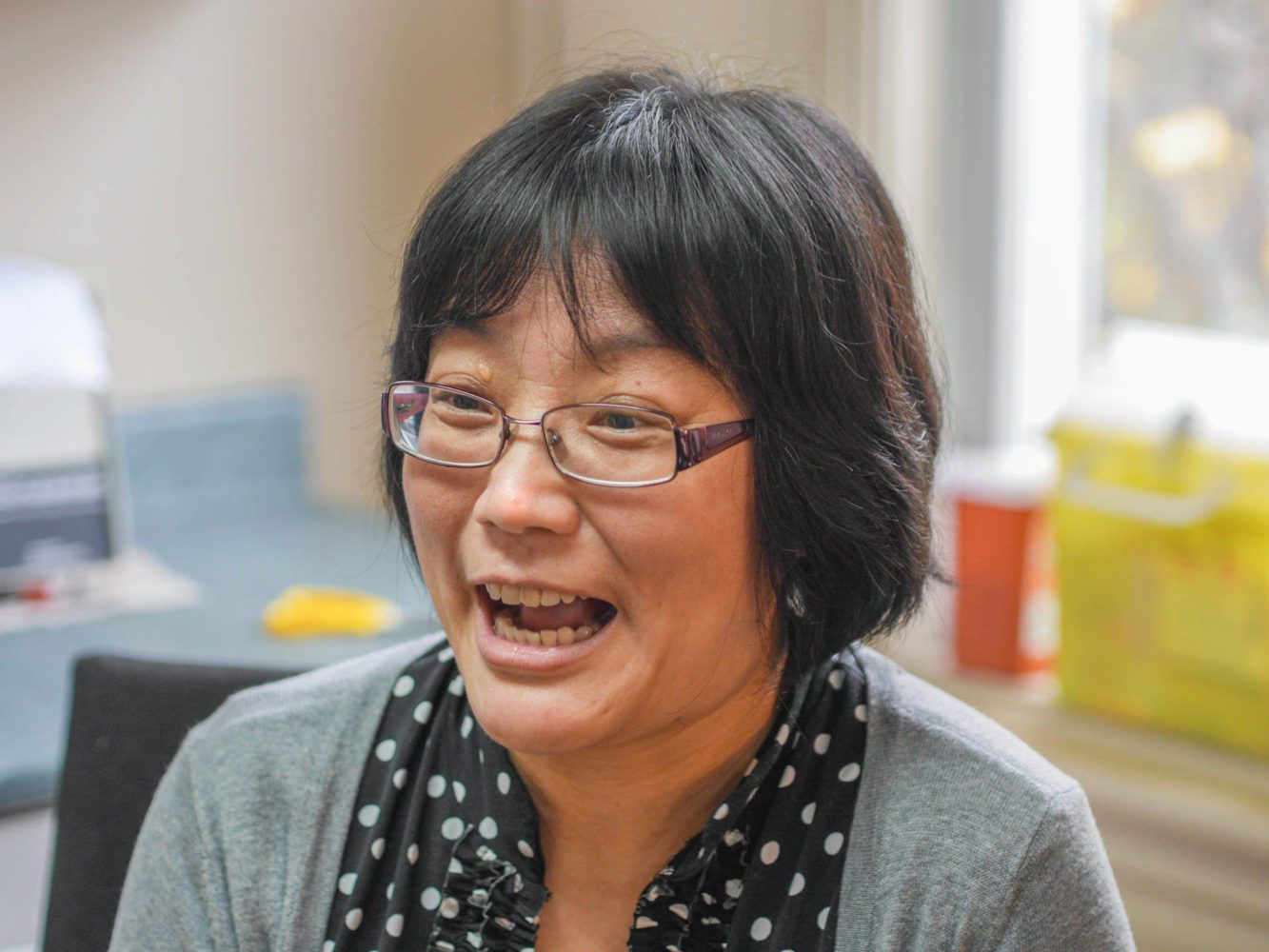
“What have your clients taught you?”
They are good teachers! They make you think of what you can do to make your life more meaningful.
“We had a client who was a famous artist, Normee. He was definitely a teacher. You know – his art, his spirituality, his determination to survive. He was given a prognosis of around three months when he first came to the hospice, and he was in and out of the hospice for eight years. He would give staff members artwork that he painted while he was there. I heard one story about him that whenever he received a big cheque for his art, he would go to a restaurant and buy everyone dinner. He expected the same would happen when a friend got a big cheque. But it never did! He struggled with addiction and he’d had a difficult life. But he was always very calm and kind and very grateful for the care that he received.”
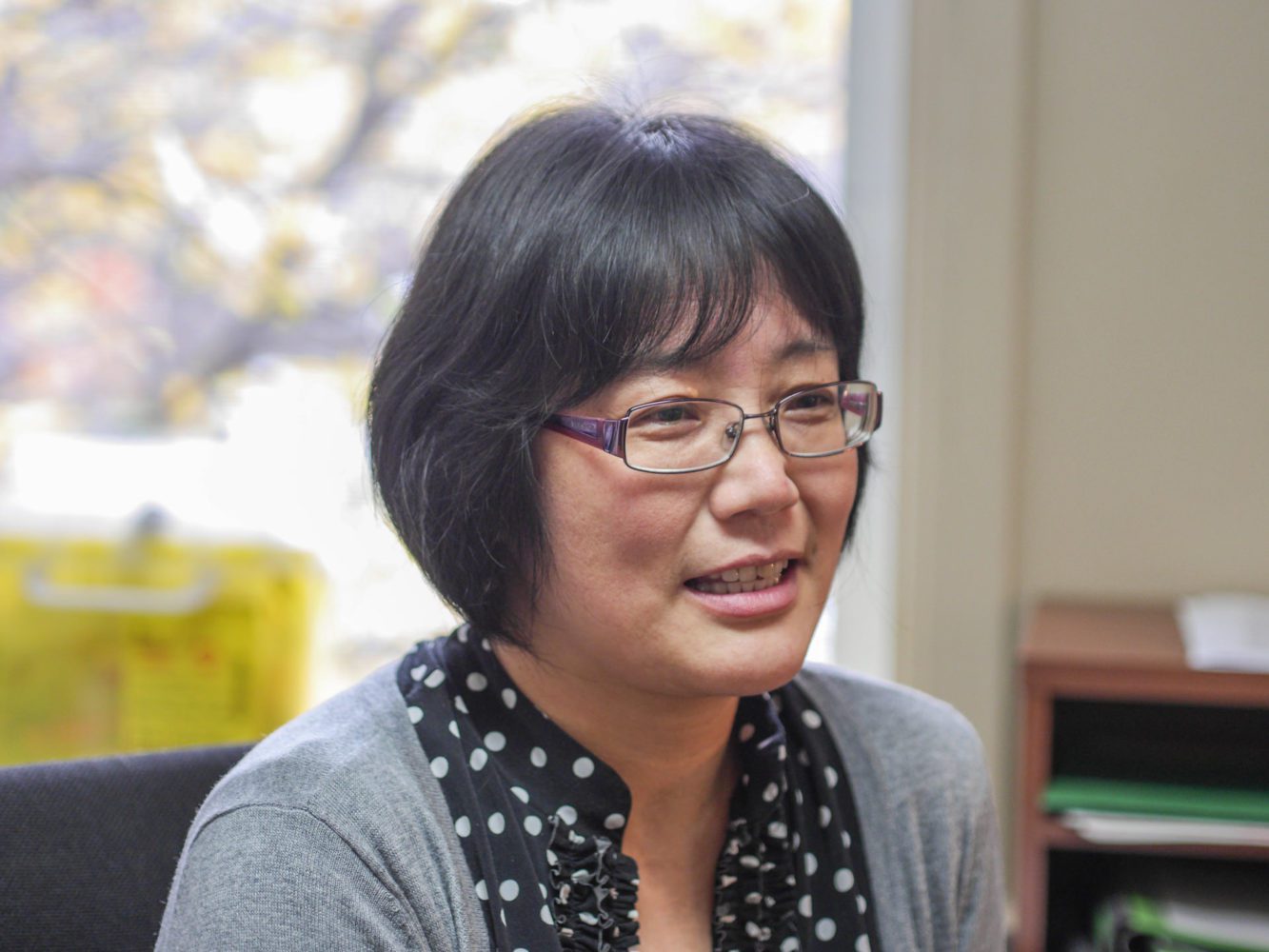
“What do your parents think about you becoming a palliative care nurse?”
“I was born in China and came to Canada with my husband and son in 2001.”
In China, the culture is for people not to discuss death. Even when you know that a person is not doing well and is going to die, you still try to cheer them up and say there is hope.
“They avoid discussing death as openly as here. Because I know the culture, I tend not to say what I do, unless asked. My parents know what I am doing. They will say, ‘Oh it must be very hard! You see people dying, and once you care for them, you develop an attachment. How do you handle that?’ It is hard, but it’s your job, and you have to be professional. You learn over time how to show compassion and care for people, but at the same time, to protect yourself, emotionally.”
“That said, the unit is not ‘the death place,’ you know! Most patients who are likely to die in three months can still walk around and are quite active when they first come to us. It is usually the last one or two weeks when they become bed bound. We give them lots of attention and care.”


The comments section is closed.